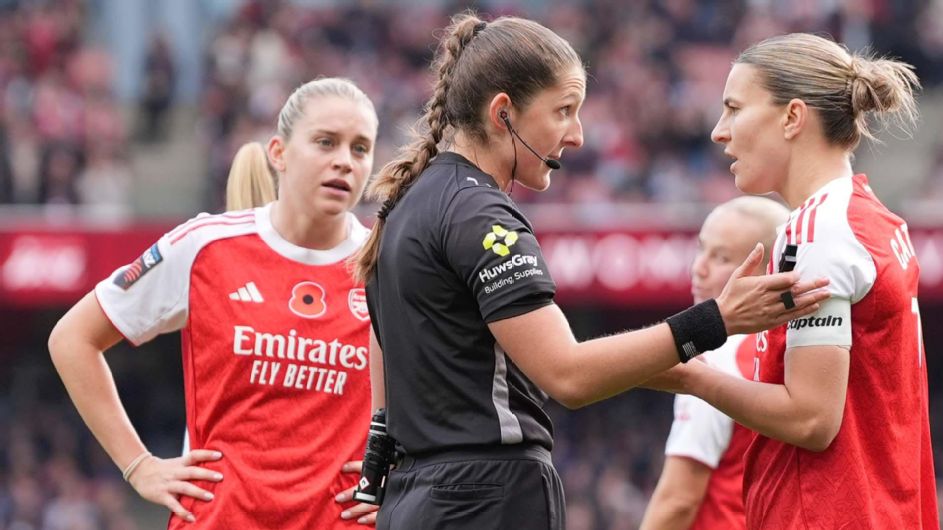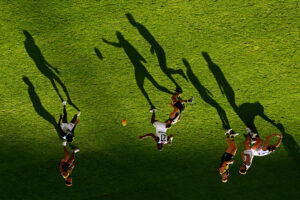
The highly anticipated clash between Arsenal and Chelsea in the Women’s Super League (WSL) ended in a 1-1 draw on Saturday afternoon, but the match was overshadowed by controversial officiating decisions. Fans and players alike expressed frustration over the referee’s calls, which detracted from what should have been a thrilling showcase between two of the league’s top teams.
The match, held at the Emirates Stadium, featured a stunning opener from Chelsea’s Alyssa Thompson, who scored with a deft chip over the goalkeeper. However, the narrative quickly shifted from the quality of play to a series of contentious decisions that left both teams questioning the officiating standards in the WSL.
In the 53rd minute, Arsenal equalized with a goal from Stina Blackstenius, but it was disallowed after referee Melissa Burgin ruled there was a handball during the play. This decision incited outrage among Arsenal supporters, especially since the ball had not actually touched Blackstenius’s hand. The situation escalated further when Arsenal’s Victoria Pelova received only a yellow card for a reckless challenge that many believed warranted a red card.
As the match progressed, the officiating continued to be a focal point. In the 87th minute, Arsenal’s Alessia Russo found the net again, but the goal was deemed offside. Shortly thereafter, Frida Maanum appeared to score a late winner for Arsenal, only for it to be ruled offside despite being level with the last defender.
Both managers expressed their concerns post-match. Arsenal’s head coach, Renee Slegers, called for the introduction of Video Assistant Referee (VAR) technology to ensure fair decisions in high-stakes games. She stated, “We need just decisions. We need justice. That’s where I think VAR and technology can come in.” Slegers highlighted the growing significance of the WSL, not just for title contenders but also for teams fighting relegation.
Chelsea’s manager, Sonia Bompastor, echoed these sentiments, noting that the discussion surrounding officiating often overshadows the quality of football on display. “This fixture is probably one of the most beautiful games in the world,” Bompastor remarked. “We should balance that with the refereeing.”
The absence of VAR in the WSL has become a recurring theme, with similar complaints arising in previous matches. Last season, a reverse fixture at Stamford Bridge also featured questionable officiating decisions that prompted calls for improved standards and technology. Despite promises of investment in officiating following a takeover in the league, many believe there has been little progress.
As the WSL season continues with 14 games remaining, the question of officiating quality looms large. The need for better training and resources for referees is evident, as is the pressing demand for technology that could significantly reduce errors. The hope is that future matches will not suffer the same fate, allowing the focus to return to the players and their performances on the field.
The draw leaves Arsenal and Chelsea in a tight race for the title, but the lingering issues surrounding officiating threaten to overshadow the league’s growth. With continued scrutiny and calls for improvement, the path forward remains uncertain.






